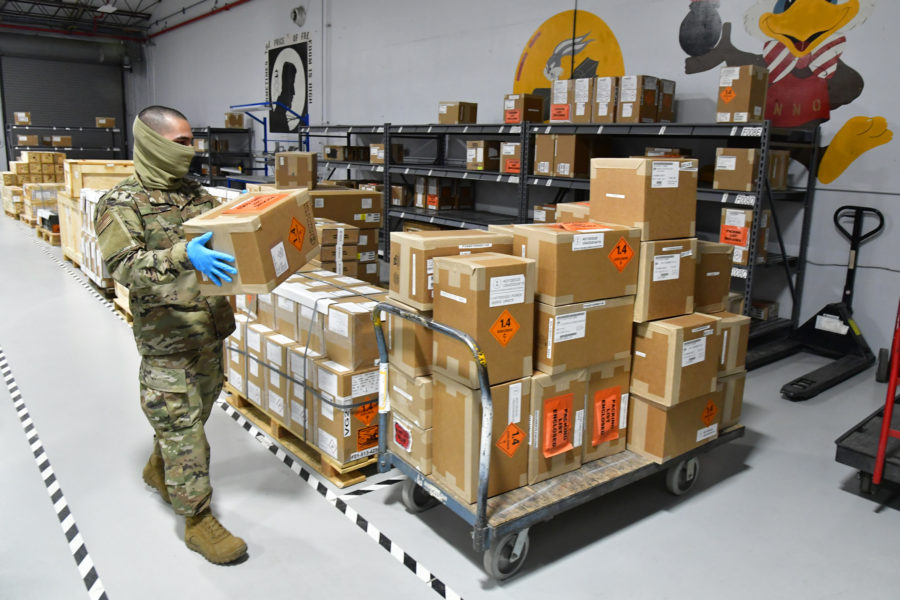The Pentagon is seeking industry comments about defense supply chain vulnerabilities in the areas of “select” kinetic weapons, power storage, microelectronics, and castings and forgings. The Biden administration wants the information to develop policies that can head off single-point failures in defense supply.
The call for input came in the Federal Register and was announced by the Pentagon on Sept. 28. Comments will be collected through Oct. 13 and will be available for public viewing at a later date. The information will support the Annual Industrial Capabilities Report mandated by Congress.
Biden directed six federal agencies to assess their respective industrial bases in a February executive order. The Pentagon is to supply a report to the White House describing “key vulnerabilities and potential courses of action to strengthen the defense industrial base.” The information follows up on a 2018 assessment, “Assessing and Strengthening the Manufacturing and Defense Industrial Base and Supply Chain Resiliency of the United States,” and the Deputy Assistant Secretary for industrial Policy is conducting it.
- “Select kinetic capabilities” covers precision-guided munitions, hypersonics, and directed energy. The concern is that key components, such as “critical energetics” and microelectronics are “almost exclusively produced by foreign entities, including adversarial nations.”
- “Energy storage/batteries” is on the list because they are critical to all kinetic capabilities and constitute an “evolving” requirement. Risks to the supply chain stem from defense-unique requirements with low production volumes that cause “high local costs.”
- Microelectronics are used in nearly all defense systems. Defense-specific challenges in this supply chain are due to “acquisition processes, obsolescence, and the need for secure suppliers.” The one-year assessment will focus on military-specific applications and the “ongoing challenges between commercial and defense requirements.”
- “Castings and forgings”—domestic capability and capacity in this area have declined, the Pentagon said, which limits the industrial base’s ability to “develop, sustain, or expand production.”
The Pentagon also wants input on “system enablers” as they affect the focus areas, since “gaps or fragility” in these areas can create strategic or operational risk. The enablers are: workforce, at all levels, from wrench-turners to those with engineering degrees; cyber posture, to include cybersecurity, industrial security, and counterintelligence; interoperability, among systems within the Defense Department and with allies; barriers to small businesses entering and staying in the “defense ecosystem;” and manufacturing, both traditional and “additive” methods.
The request for comments offers specific questions that the Pentagon would like respondents to answer, as well. These include, how globalization has affected company supply chains and ability to respond to the Pentagon’s needs; the greatest challenges facing companies “in a distributed environment;” how the DOD can help; where the federal government is “effectively” mitigating supply chain risks; what the government can do better to mitigate vulnerabilities, especially in PGMs and microelectronics; and what government can do differently to attract cyber expert talent, implement standards, and “incentivize” the adoption of modern technology.

